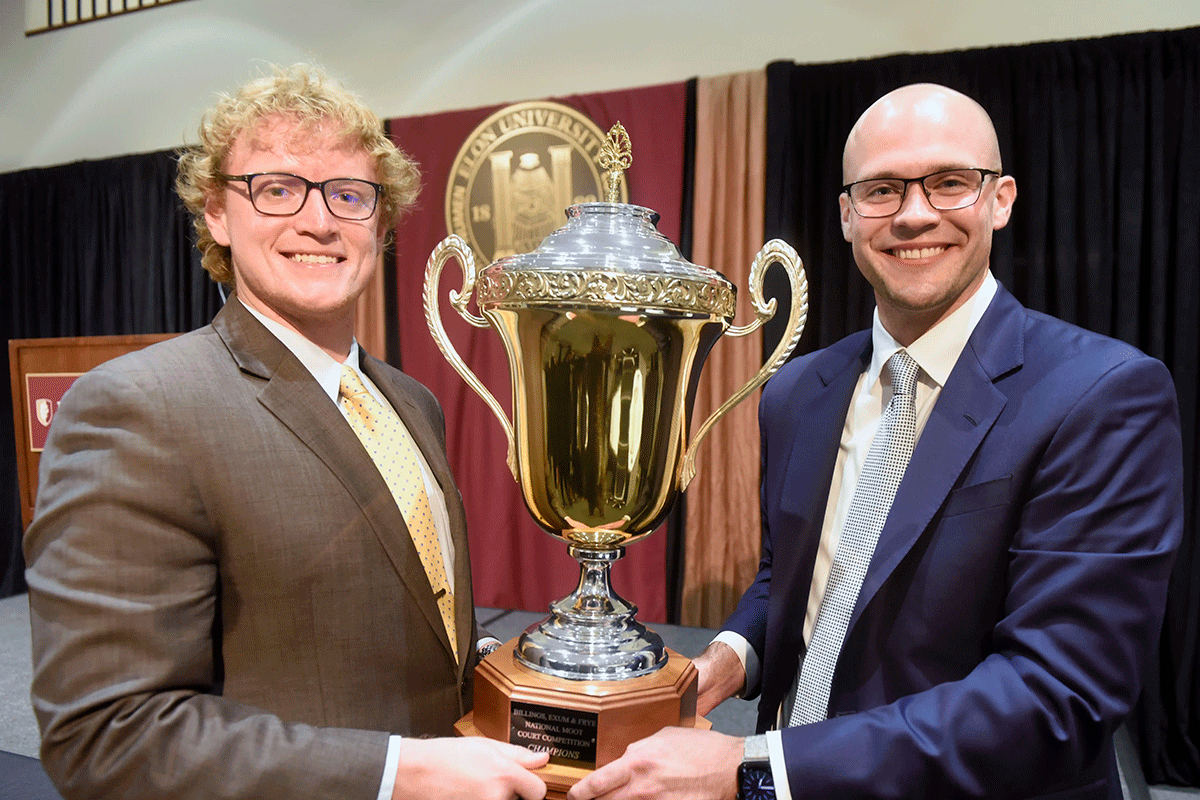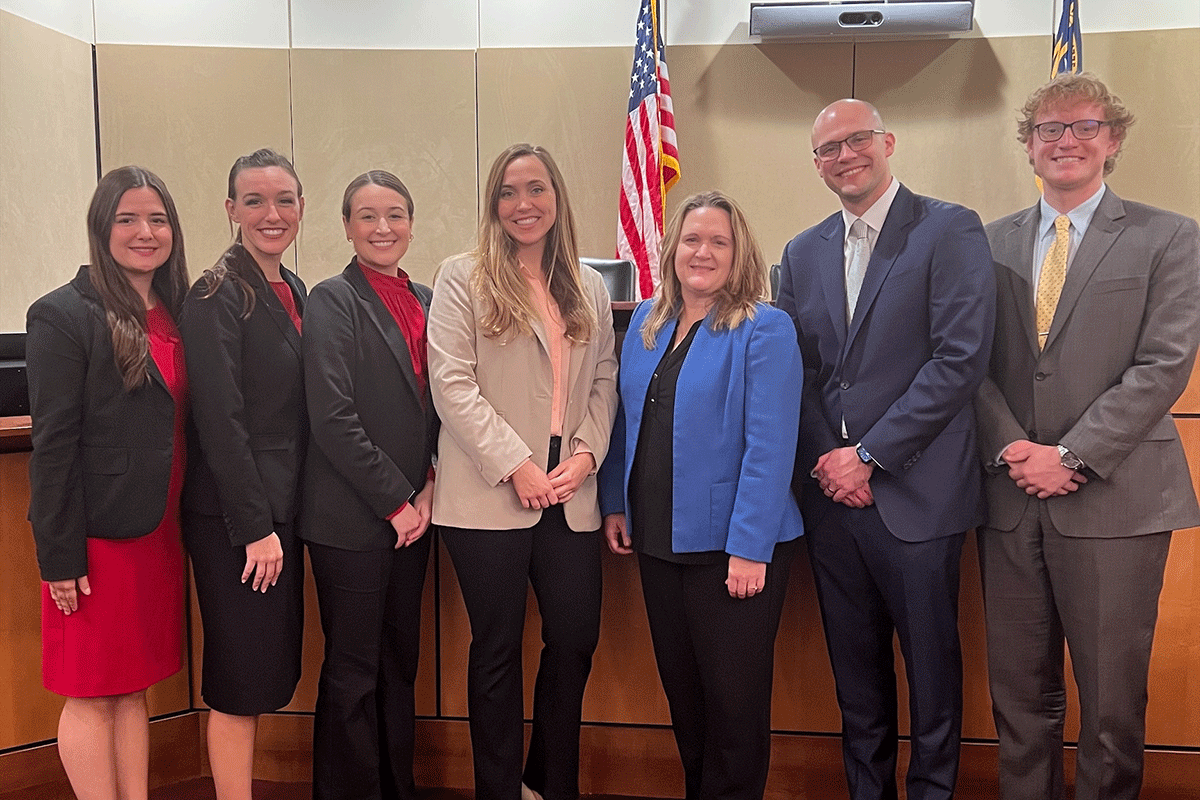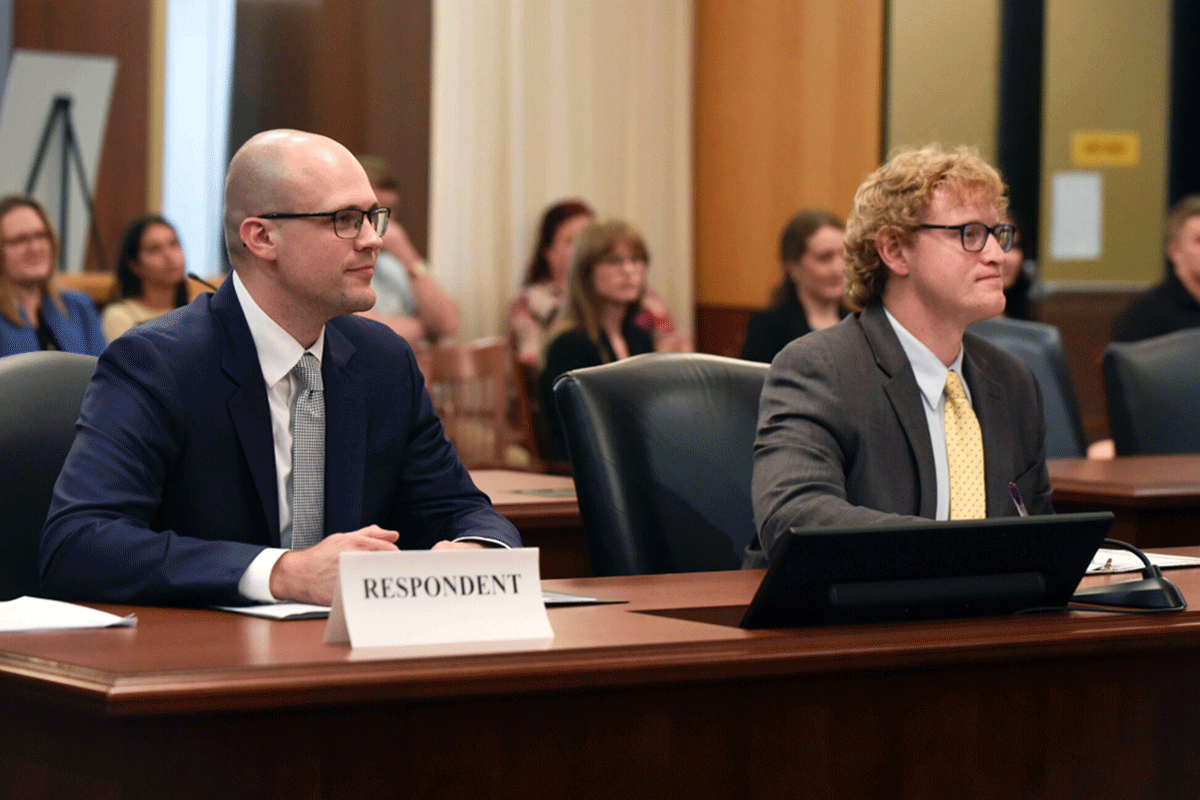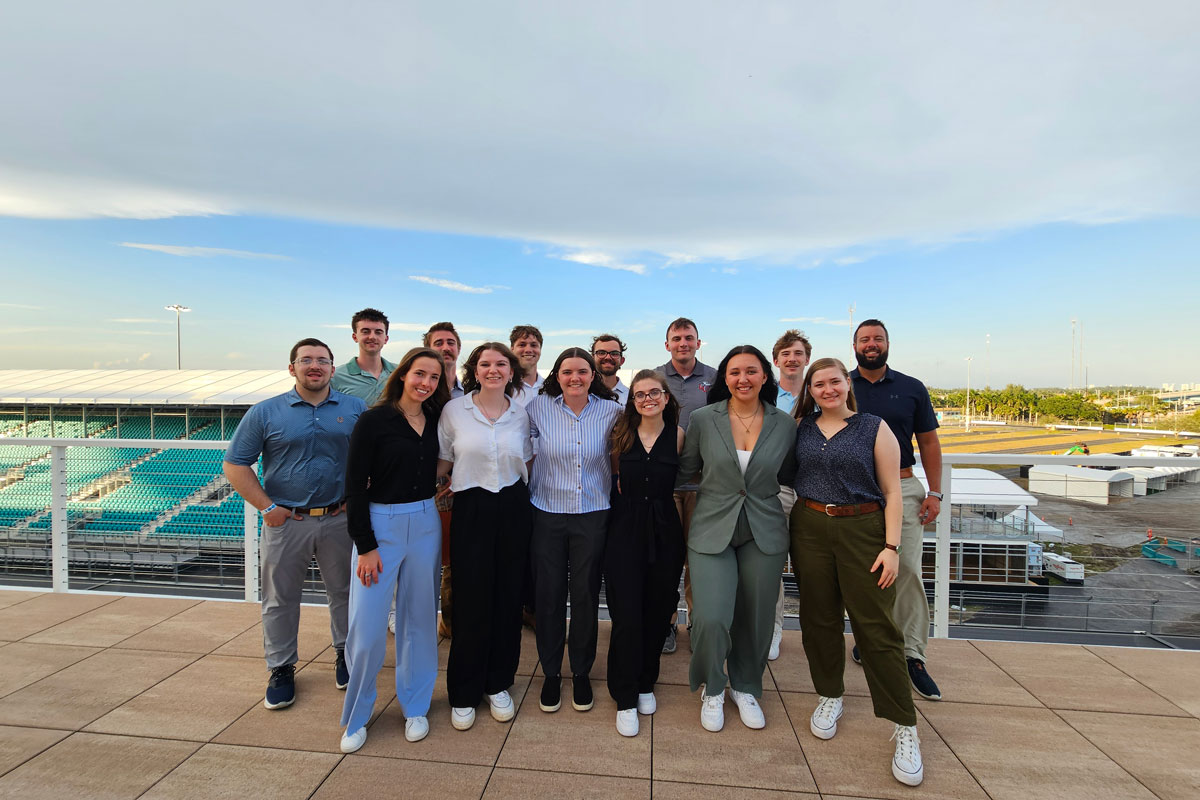Search News Archives
Filter News Articles
Additional Navigation
Liberty Law students crowned victors at national moot court competition
October 23, 2024 : By Abigail Degnan - Office of Communications & Public Engagement

Liberty University School of Law 3Ls Carter Leverette and Stephen Nast won first place in the Elon (N.C.) University School of Law’s 15th Billings, Exum, and Frye National Moot Court Competition on Oct. 11 and 12, where 39 other teams from around the country competed.
They competed alongside fellow Liberty Law 3L students Addison Emenecker, Lauren Saarela, and Madison Crabtree, who also advanced to the quarterfinals. Leverette and Nast faced William & Mary Law School in the final round, where Leverette earned Best Oralist. Nast was awarded Best Oralist in the preliminary rounds. The team was also awarded Best Brief honors.
“Liberty Law exemplified excellence, professionalism, and wisdom at the Elon moot court competition,” said School of Law Professor Rena Lindevaldsen, who coached the team alongside Assistant Professor Natalie Rhoads. “At every turn, the students demonstrated their thorough understanding of the law.”

The case theme involved the timely issue of whether biological males who identify as females should compete against females in competitive contact sports in middle and high school. The competition required the team to argue both sides of the issue. Leverette and Nast wrote a brief against the Save Women’s Sports Act and in other rounds argued as respondents in support of the law.
“It was a unique challenge for us to make a legal argument that didn’t necessarily take us away from our own views and beliefs,” Leverette said. “We still managed to write a legal argument from a view that helped our client without abandoning our beliefs. We treated it with the level of seriousness and respect that it deserves but still stood by our faith.”
“We don’t know where these judges line up on this issue,” Nast added. “But one of the judges in the round looked at us and told us that when we argued on the side of the state to uphold the law, we told them things that they didn’t know really well from real-world events that are happening right now. To be able to potentially have an impact on the way someone sees this position in real life, that’s super important.”
Both students said the competition gave them additional skills for their careers and experience in front of judges.
“Something so unique and special is that Stephen and I now have had the opportunity — not in a real case but in moot court — to be in front of North Carolina judges and a North Carolina Supreme Court Justice,” Leverette said. “For most young lawyers, it may be a really long time before they ever argue in front of the Court of Appeals. In some (cases), in their careers, they may never argue before a state Supreme Court or the actual Supreme Court. And Stephen and I, as law students, now have already had that opportunity.”
Leverette added that the academic support and rigorous curriculum at Liberty Law provided the skills necessary to excel in the competition.
“This law school has very carefully crafted its lawyering skills program,” he said. “We have a lawyering skills class each semester. In our 1L year (and 2L and 3L) we had to write a brief, which is what we wrote for the competition and ultimately won. They want to train us for the practice of law after law school, and that’s Liberty Law’s second most important emphasis after Training Champions for Christ — to prepare us to be (excellent) lawyers after law school.”

On top of the academic support received at Liberty Law, Nast said the school’s emphasis on spiritual development gave them peace and confidence as they competed.
“Our faith is the most important thing that we could possibly have,” he said. “We clung onto that the morning before our Friday round. I looked up the verse of the week (at Liberty Law), and it was Proverbs 16:3, ‘Commit your works to the Lord and your thoughts will be established.’ In moot court, when you’re wanting to be able to answer questions, you need to have your thoughts ready to go. That was just such a powerful verse in that moment.”
Nast said every professor and every student at Liberty Law was supporting and praying for them. He emphasized that the community and culture at Liberty Law has the “kindest, most supportive, and the most helpful” people.
“We come in the morning knowing that we’re going to be here with 300 of our most favorite people in the world,” he said. “(Because of that), we’re excited to attack a day of law.”
Leverette said they pray before every round of competition. “That’s where my nerves get calmed, in prayer,” he said. “That’s where I’m reminded that when I’m arguing behind the podium, even though this is a fictional competition, God puts me behind that podium for a reason, and God is going to be with me and give me the ability to succeed, answer the questions, and calm my heart.”
The pair said their win is not a win for them individually, but a win for the entire community at Liberty Law, and that they could not have done it without the help of the other team, the faculty, staff, and fellow students.
“(Both teams) embodied Liberty University’s vision that if it’s Christian it ought to be better and ought to be Christian,” Rhoads said. “We are so proud of how well the students represented our university.”


